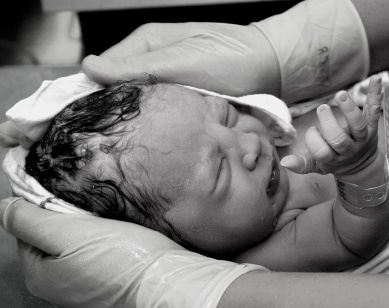There are many reasons that a mom may need to have a cesarean birth, but not all C-sections are necessary. In fact, many women elect to have them, or are told by their physician that they cannot have a vaginal birth after having a C-section. Unfortunately, both of these situations put both mom and baby at unnecessary risk. Add that to the increasing number of studies that point to increased risk of long-term health problems for infants, and it truly doesn’t seem worth it.
“While cesarean deliveries can be life-saving for both mother and baby, cesareans can also lead to short-term and long-term complications for both,” Dr. Mark DeFrancesco, president of the American College of Obstetrics and Gynecology, said in an email to Fox News.
This statement seems to be backed by quite a few studies, including a recent one in which co-author Jianmeng Liu of the Institute of Reproductive and Child Health in Beijing and colleagues analyzed several studies that had linked cesarean birth to an increased risk of childhood type 1 diabetes (20 studies), asthma (23 studies), and obesity (9 studies).
According to the authors, about 2.13 of every 1,000 babies born via cesarean in the U.S. develop type 1 diabetes. This was compared to just 1.79 per 1,000 vaginally delivered children. Obesity rates also appeared to be higher in children delivered cesarean, with 19.4% of cesarean children and only 15.8% of vaginally born children developing obesity later in life. And in regards to asthma, 9.5% of children born via cesarean developed it while only 7.9 percent of vaginally born babies did.
The reason behind the potential link isn’t completely clear, but the most prevailing theory is that it has something to do with good bacteria passed to babies during vaginal birth. Lead author Dr. Jan Bluestein also suggested that it may be a matter of hormones that are released during labor, which may not be transferred during a cesarean birth.
Either way, the message is clear—even if certain factors can’t be accounted for, and even though there’ no direct cause and effect, it’s something worth discussing when determining a birth plan with your obstetrician or midwife.
“It’s a discussion that’s important to have in view of the rising rate of C-sections,” Bluestein, a professor of medicine and health policy at New York University, told Fox News. “The magnitude of risk elevation is small, but even when we are talking about increasing the risk modestly, we still need to talk about it.”
Related Articles:







